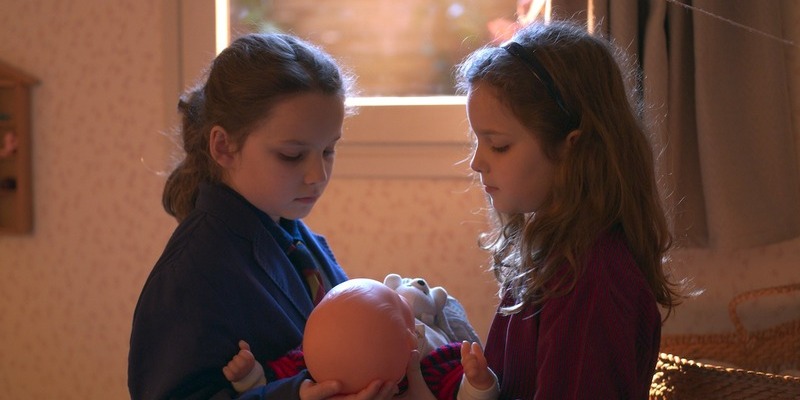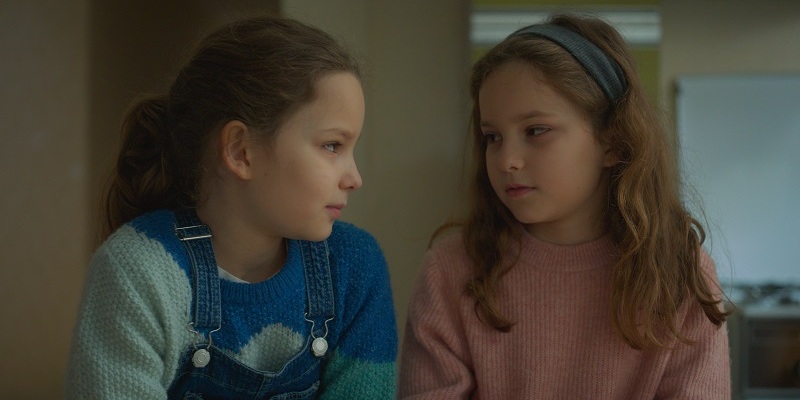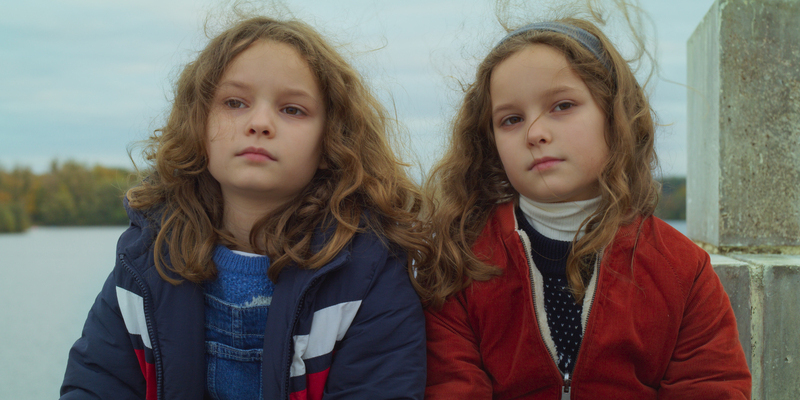
Following her grandmother's death, a young girl befriends a girl with a
curious resemblance to herself.
Review by
Eric Hillis
Directed by: Céline Sciamma
Starring: Joséphine Sanz, Gabrielle Sanz, Stéphane Varupenne, Nina Meurisse, Margo
Abascal

When I was a kid, children's TV shows didn't talk down to their young
audience. Unlike today's age of mollycoddling helicopter parents who
shield their kids from anything that might remotely upset them,
children's entertainment was once seen as an opportunity to prepare
children for the blows they would inevitably receive along life's path –
deaths, disappointments, failed dreams. Witness the many memes that
reassess Willy Wonka and the Chocolate Factory as a horror
movie. You still see this in Japanese animation, but it's an idea that's
largely died out in the west, though the recent
A Monster Calls
is a rare example. One western filmmaker keeping it alive is
Céline Sciamma with her latest film, the tender supernatural tale
Petite Maman.

The film's protagonist, eight-year-old Nelly (Joséphine Sanz),
has just lost her grandmother. She's dealing with the loss better than
her mother Marion (Nina Meurisse), who has sunk into a swamp of
melancholy upon returning to her childhood home. Unable to process the
memories that inhabit the home, Marion leaves her husband (Stéphane Varupenne) to look after Nelly.
Exploring the woods around her late grandmother's home, Nelly comes
across a girl her own age, who looks like she could be her twin (she's
played by Sanz's real life twin Gabrielle). Nelly learns that the
girl's name is Marion, and she claims her grandmother's name was
Nelly.

Is this a case of time travel, like Marty McFly meeting his teenage
father in Back to the Future? Or is one of Nelly or Marion a ghost that inhabits the woods? Sciamma
leaves the answer somewhat ambiguous, but I wouldn't spoil it for you
even if I had a concrete answer.
No matter how much we love our parents, there's always that generation
gap that divides us. When you're a child your parents seem incredibly
old, and then one day you find yourself older than your mother was when
she first dropped you at the gates of school. If you met your parents
when you shared their age, would you befriend them? How would they
relate to you without the burden of familial protection and duty?
Sciamma toys with these questions in a manner that's deceptively simple,
just letting us hang out with two young girls, but which nevertheless
gets under our skin.

The Sanz twins deliver remarkable performances. They're child actors of
the best kind, and what I mean by that is that we always feel like we're
watching two children rather than two miniature adult performers, as can
too often be the case with child stars. Just hanging out with these
girls as they bond is a delight, and it often seems as though Sciamma
just pointed her camera at her two young stars and let them behave as
though they might regardless of whether a camera was present or not.
Even a grump like myself, who generally goes out of his way to avoid the
presence of kids, found myself won over by this delightful pair.
I imagine Petite Maman will play as well for children as
for adults. It has a lesson for children in coping with loss, but that's
not something adults will be immune to either. It's too easy to take our
parents for granted, to think of them as guardians without an inner
life. Sciamma's film reminds us that our mothers and fathers were once
children too. We can never meet the children our parents once were,
making Petite Maman something of a wishful fantasy of the
most endearing kind.

